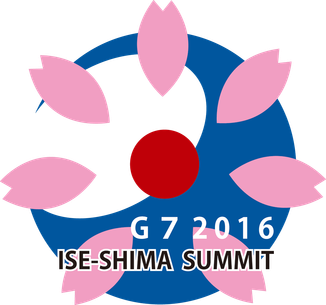G7 PRESIDENCY
Leaders and Environment Ministerial Outcomes and Communiques (2015-present)
 2021 United Kingdom
2021 United Kingdom
The
United Kingdom held a joint Climate and Environment Ministerial
track under its Presidency. The environment discussions
focused on the following priority areas: Resetting our
relationship with Nature; meeting Nature Targets; Mainstreaming Nature;
Tackling Zoonoses; Resource Efficiency; Sustainable supply chains;
Deforestation; Illicit threats to nature (including Illegal Wildlife Trade and
IUU fishing); Ocean Conversation; Tackling Marine Litter; Action on Ocean
Science; and Food loss and Waste. The Alliance for Resource Efficiency
technical Working Group in March 2021 focused on key components that support
action to reduce food waste at the household level. Further work on the Alliance
will be announced in due course.
2020 United States
The United States’ streamlined “back to basics” G7 presidency planned for a few deliverables and no Ministerial Meetings or negotiated outcomes. The United States’ three priorities were: 1) Growth and prosperity; 2) Trade and investment; and 3) Energy. Unfortunately, the COVID-19 global pandemic disrupted the United States’ plans to conduct G7 meetings and activities under its presidency, and therefore the G7 Leaders’ Summit as well as other G7 meetings were canceled.
The environment discussions during France's G7 Presidency focused on four priorities:
1) combating inequality through an inclusive ecological transition; 2) supporting scientific warnings and international action on biodiversity and the climate; 3) promoting tangible solutions for the climate and biodiversity; and 4) financing the preservation of biodiversity. France hosted two Alliance workshops on Tools Making Value Chains More Circular and Resource Efficient, and
Value Retention
Policies (see events page). The Presidency also launched an initiative to take into account the informal sector in the inclusive transition to sustainable waste management, supported by several G7 and guest countries.
The environment discussions during Canada's G7 Presidency focused on themes of climate change, oceans, and clean energy. The Environment Ministers discussed the need for long-term transition to a low-carbon economy, resource efficiency and circular economy, enacting urgent action and emission reduction opportunities, as well as adapting and conserving nature. They endorsed the G7 Innovation Challenge to address Marine Plastics Litter. Many of the G7 countries, businesses and organizations also endorsed the Ocean Plastics
Charter, which sets ambitious
steps along the plastic value chain to combat marine litter and create a circular economy.
Canada also announced
an investment of $100 million to help developing countries meet their Charter
commitments.
Canada hosted an Alliance workshop on Value Retention Policies: Advancing Remanufacturing, Refurbishment, Repair and Direct Reuse (see events page).
The environment discussions during Italy's G7 Presidency focused on global challenges such implementation of the Paris Agreement and the UN 2030 Agenda. The intersection of the economy and the environment was another priority area, specifically around environmental tax reform, environmentally harmful subsidies, the role of multilateral development banks, and green and sustainable finance. The G7 Environment Ministers adopted the 5-year Bologna Roadmap,
outlining next steps to advance resource efficiency including through development of indicators, citizen involvement and awareness. Italy also hosted the G7 Marine Litter Summit, which discussed the implementation of the G7 Action Plan to Combat Marine Litter, adopted in the 2015 during the German G7 Presidency.
The environment discussions during Japan's G7 presidency focused on implementation of the UN 2030 Agenda, climate change, resource efficiency, marine litter, biodiversity, chemicals management and role of the cities. The G7 Environment Ministers endorse the Toyama Framework on Material Cycle, which provides a common vision and a guide for actions on resource efficiency and the 3Rs (Reduce, Reuse, Recycle). Japan hosted three Alliance workshops on International Resource Recycling; Resource Efficiency and Low-Carbon Society; and Promoting International Cooperation for Improving Global Resource Efficiency (see events page).
The environment discussions during Germany's G7 presidency focused on climate change, energy, resource efficiency, and protection of the marine environment. Building on previous initiatives such as the "Kobe 3R Action Plan", the G7 Leaders agreed to establish the G7-Alliance on Resource Efficiency as a forum to share knowledge and create information networks to advance related discussions.
Leaders also asked the UNEP International Resource Panel to prepare a synthesis report highlighting the most promising potentials and solutions for resource efficiency, and invited the OECD to develop policy guidance supplementing the synthesis report (see resources page). Germany hosted the inaugural meeting of the G7 Alliance, along with a workshop on resource efficiency (see events page).




